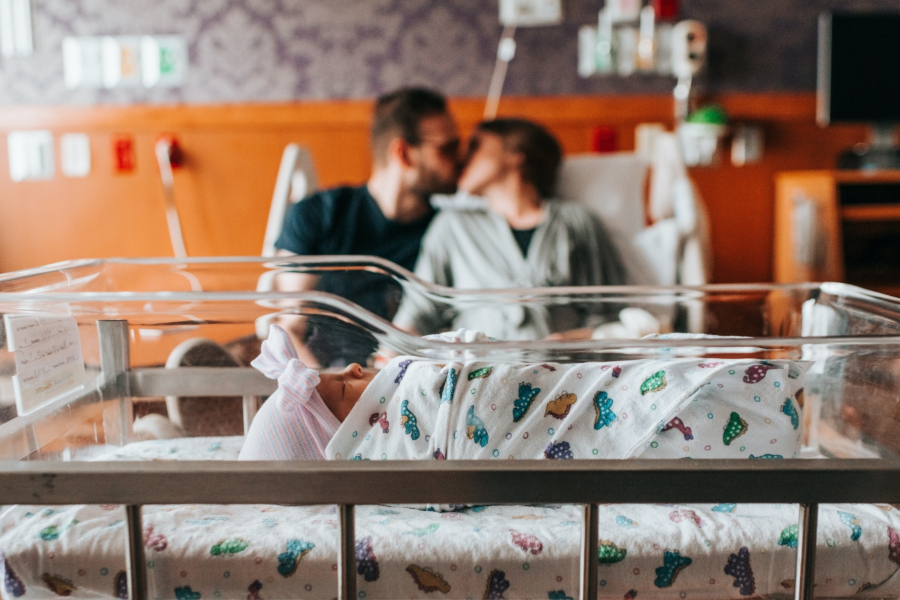The principle of consent
A cornerstone principle of UK fertility law is that eggs, sperm and embryos can only be stored, used in treatment, donated, or used for the purposes of research, if the gamete provider consents.
To be legally valid, consent must be in writing and signed (although there are some special rules which allow a person who is physically incapacitated to ask someone else to sign for them). In practice, consent is normally given using a signed HFEA form, although consent is equally valid in another written/signed form (such as a letter or a will).
Consent can be varied or withdrawn by the egg or sperm provider at any time before the eggs, sperm or embryos are placed in the body of a woman or used in research. A variation or withdrawal of consent must also be given in writing and with a signature.
If an egg or sperm provider (whether a patient or a donor) withdraws consent to the storage of an embryo, there is a special procedure. Everyone for whom the embryo was to be used in treatment must be notified that consent to storage has been withdrawn, including the other gamete provider if he or she is not a donor, or alternatively the other intended recipient if the embryo was created with eggs or sperm from a donor.
Storage of the embryo then remains lawful for 12 months, although it cannot be used in treatment during this time unless both gamete providers consent. If all the people notified confirm that they are happy for the embryo to be destroyed, it can be allowed to perish before the end of the cooling-off period. If not, the embryo must be held in storage for 12 months, giving the person who has withdrawn consent the opportunity to change his or her mind. If he or she does not change his or her mind, the embryo must be destroyed at the end of the year.
There are some exceptional circumstances in which eggs or sperm can be stored without consent, for example where someone (an adult who is temporarily incapacitated or a child) is about to undergo medical treatment that will impair his or her fertility and a doctor certifies that it is in his or her best interests. In both cases, the eggs or sperm can only be stored; they cannot be used in treatment unless the person becomes capable and gives consent.
Storage periods: eggs, sperm and embryos
The law specifies the maximum periods for which eggs, sperm or embryos can be stored (assuming that the egg and sperm provider consent to storage for this period). The basic maximum storage period is ten years. Until July 2022, only patients who were ‘prematurely infertile’ were permitted to extend storage beyond this, and the rules were notoriously complicated. The law changed from 1 July 2022 so that all patients can now extend storage up to a maximum of 55 years, subject to making that election and renewing their consent at least every ten years.
Using eggs or sperm after someone has died (posthumous conception)
When someone consents to their eggs, sperm or embryos being stored, they are asked to decide what should happen if they die or become mentally incapable. Posthumous conception is only possible where there is a written signed consent to post-death use from the person who has died (although consents provided before 1 October 2009 only had to be in writing and not signed).
It is very important that consent to posthumous storage use of eggs, sperm or embryos is given carefully and with sufficient detail, since it will only ever need to be relied on after it is too late to clarify the person’s intentions. Several cases have dealt with situations in which consent was not given, or not given sufficiently clearly.
Diane Blood fought a renowned legal battle in the early 2000s to conceive using her deceased husband’s sperm (which had been collected – unlawfully – without his consent after he was unexpectedly incapacitated by meningitis). The court ultimately decided that it was an infringement of EU law to deny Mrs Blood her right to seek treatment elsewhere in Europe. Although treatment could not take place in the UK because the collection and storage of the sperm was unlawful, the HFEA allowed Mrs Blood to export her husband’s sperm to Belgium where she was successfully treated.
In M v HFEA (2015) and M v HFEA (Court of Appeal, 2016), a young woman had died leaving eggs in storage which she had considered her ‘babies on ice’. Her parents, honouring her wishes, wanted to use the eggs to conceive a child (who would be carried by the woman’s mother and raised by her parents as their grandchild) but the terms of the written consent the woman had left were not clear: though she had ticked a box to say she wanted her eggs to be used after her death she did not specify any further wishes. The UK fertility clinic where the eggs were stored therefore refused to use the eggs in treatment so the parents sought to export the eggs to the USA. When the HFEA refused permission for export, they took the case to court. The High Court initially ruled against them, saying that consent had to be clear and in writing. However, the Court of Appeal took a more flexible view and accepted wider evidence of the young woman’s wishes.
The UK’s leading conception lawyers
Find out more about how we support those creating families
Related articles

Legal parenthood where a child is born after their parent has died
Where a child is born after their parent has died, there can be complex questions about whether the deceased parent is a legal parent, and what can…

Donor conception at UK fertility clinics
The Human Fertilisation and Embryology Authority regulates fertility treatment with donor eggs, sperm or embryos in the UK. Anyone who collects, stores or uses human gametes or…

Legal parenthood after donor conception and assisted reproduction
Where children are conceived though artificial insemination or the transfer of an embryo, the Human Fertilisation and Embryology Act 2008…
